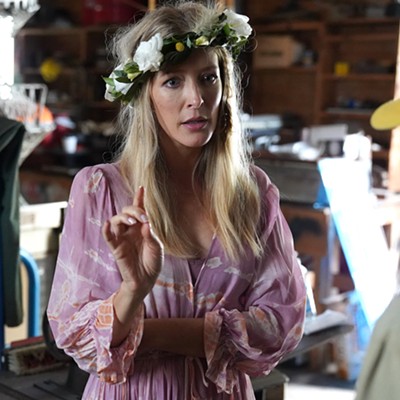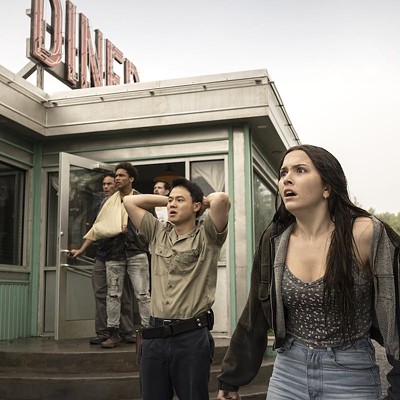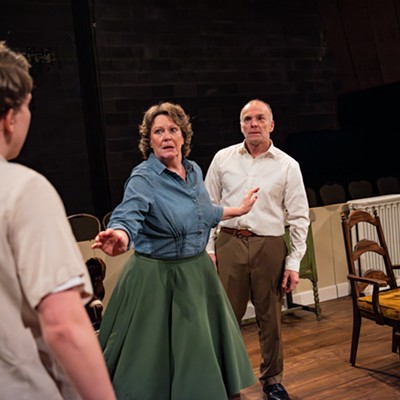Seeing through “buzz” (the promotional hype that constitutes most movie-writing) is a necessary aim of criticism. But lapdogs don’t want good movies. They want Dreamgirls.
Bill Condon’s adaptation of the Broadway musical, based loosely on the career of The Supremes, distorts the legacy and major cultural impact of black music. It looks and plays like every other glitzy star-bio of the past decade. It has no perspective on anything. Most detrimentally, Dreamgirls’ music has no soul. Instead of honouring the sounds of R&B, Motown and funk, the songs by Tom Eyen and Henry Krieger lose historical identity by reaching to stage-musical fantabulousness.
The white appropriation of African American music is glossed over as The Dreamettes (the female singing trio played by Beyonce, Jennifer Hudson and Anika Noni Rose) are taken aback by a beach party rendition of their “Cadillac Car.” It’s used only as the beginning of the predictable musical industry ringer that Dreamgirls runs its characters through. Condon assembles almost every song as a basis for a montage on the ups and downs of fame. At least when OutKast’s Idlewild barely graced its historical context, director Bryan Barber brought to it a creative visual language.
You don’t have to hate the musical genre to recognize that Dreamgirls, Chicago and Rent are bullshit. These films fake compassion for the oppressed. In Dreamgirls, oppression is defeated through a message on the value of selling out. Dreamette Effie (American Idol’s Jennifer Hudson) has a mid-movie stage breakdown singing “And I Am Telling You I’m Not Going.” Her desperate plea to the man she loves (“You’re gonna love me”) is pitched as an empowering moment. But Condon photographs her from low angles with harsh lighting, making her seem like a deranged monster.
For all the accolades the “spectacle” of Dreamgirls is receiving, Condon assembles the stage performances in a very traditional way. Rarely moving his camera, he gives an illusion of energy by cutting the image to the musical beat. Compare this to Diane Lane taking the stage in the opening of Streets of Fire (one of the greatest assembled musical sequences in history), where director Walter Hill uses each angle and edit to create an electricity between the audience and the performer on stage. Condon’s mere competence can’t elevate Dreamgirls’ banal storyline. Instead, he’s delivered a calculated Oscar movie. It has no soul to sell.
The Good Shepherd
A respectable drag is an accurate summation of The Good Shepherd. Robert De Niro’s return to the director’s chair after A Bronx Tale lacks neither ambition nor artistry. His preponderance of very short scenes within a broad scope cuts against the dramatic comforts expected of high-profile Hollywood movies. But at nearly three hours, the reach is so vast the movie never finds its shape.
Pitched as a chronicle of the early years of the CIA, the narrative vessel is Yale poetry student Edward Wilson (Matt Damon). He joins a Skull and Bones society, is given a post in the OSS, takes a wife (Angelina Jolie) and continues his climb to power. Steadily, Wilson becomes as amoral as the institution he’s ready to devote his life to. The Good Shepherd has its good pieces, but De Niro and screenwriter Eric Roth don’t make Wilson’s transformation felt. Without concision and momentum, the moviemaking gusto is done a disservice.
Email with gusto. Write: [email protected]













